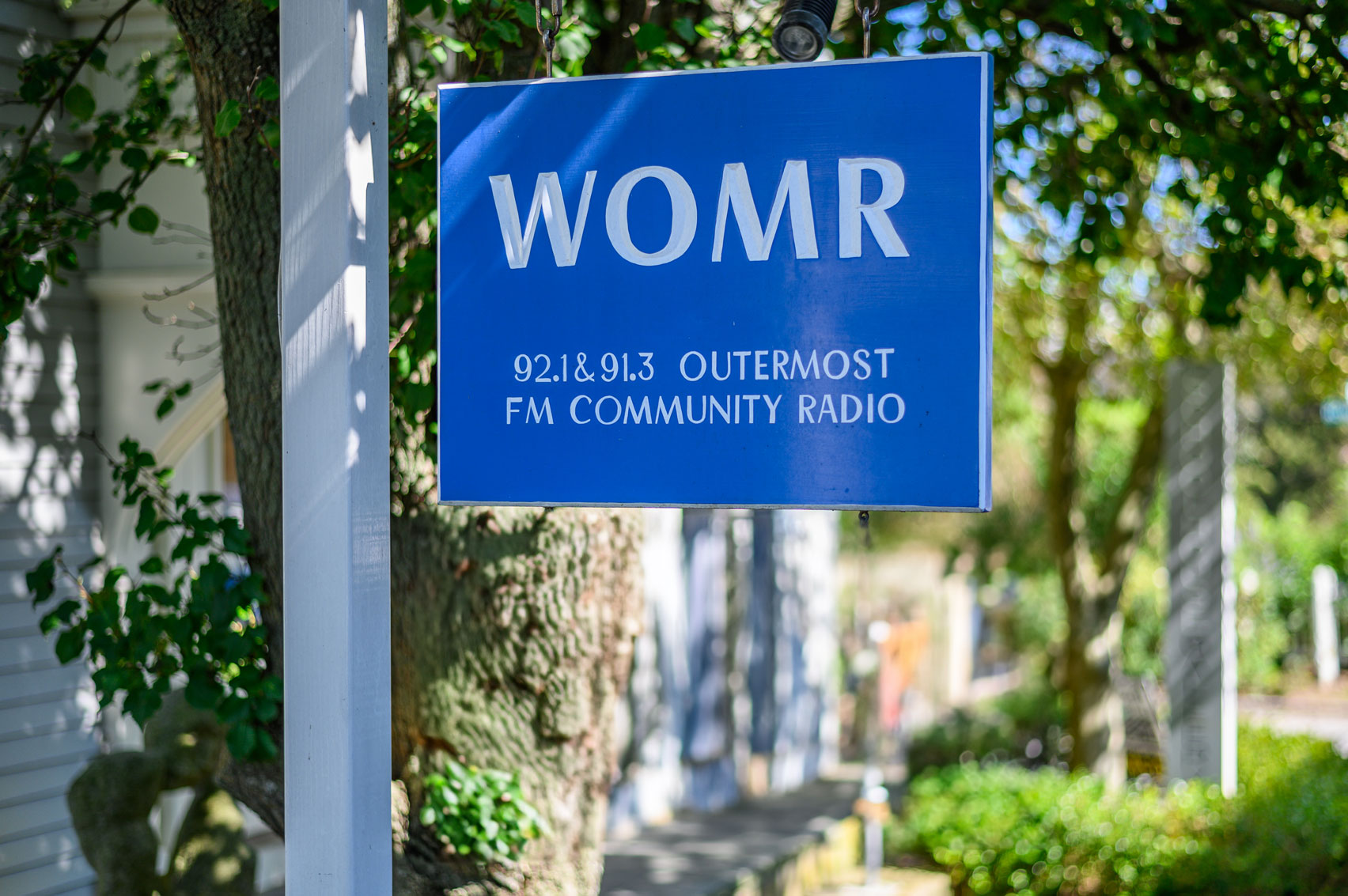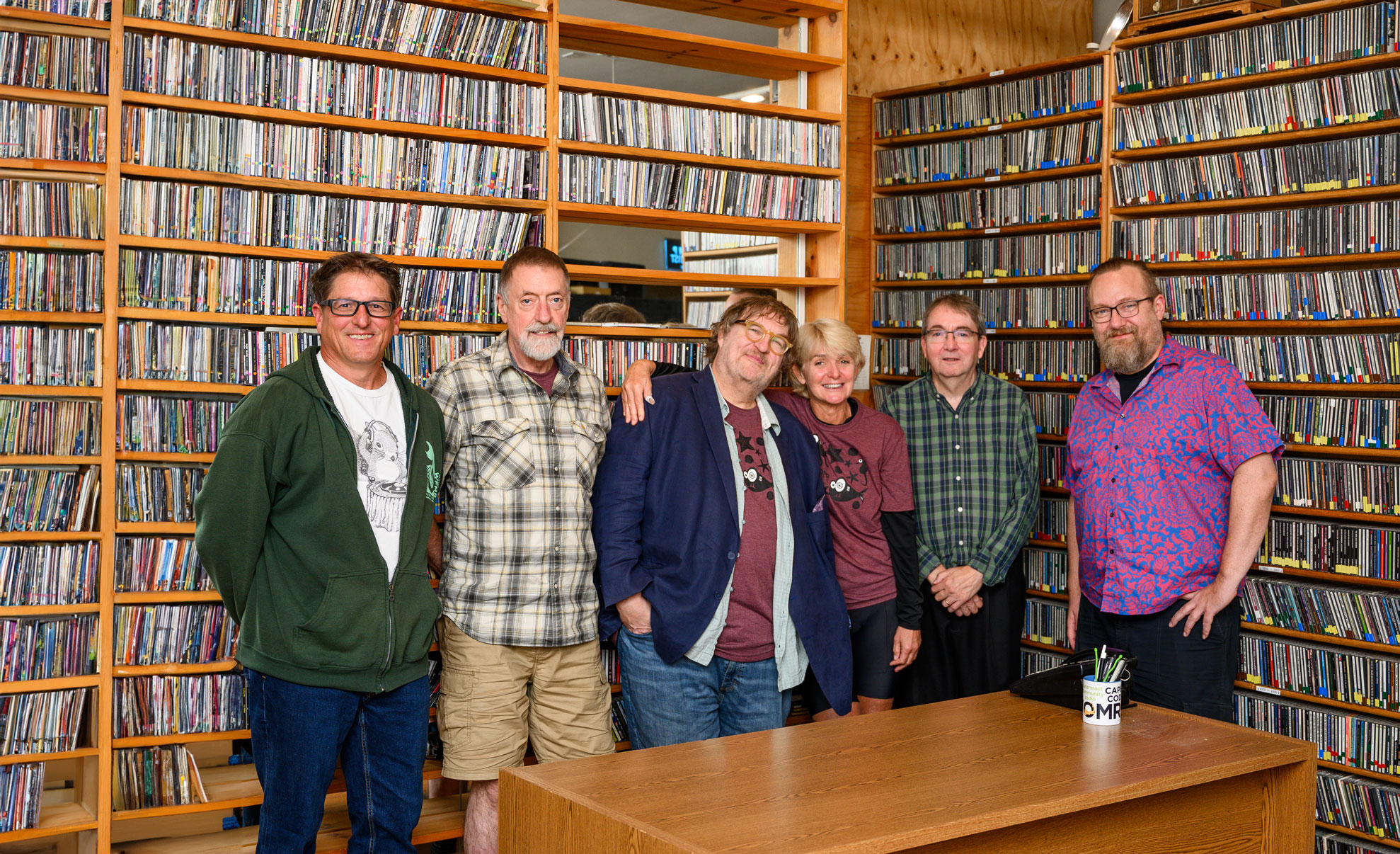Community radio stalwart WOMR delivers diverse programming with a human touch.
by James P. Freeman » photography by Bryan Stearns
It’s late on a Friday night.
G. Orca Limbo Jones slips a CD into the player. Soon, Spirit’s potent, proto-prog rock tune “Mechanical World” crackles through the speakers on the broadcast desk. The track begins what will be three hours of a classic, free-form radio show dubbed “AOR” for album-oriented radio. As Jones sets up, you’re drawn to the DJ’s black tee-shirt emblazoned with a phrase that reveals the show’s identity: “Perspicacity Is Paramount.”
To understand his show is to further understand its unconventional home.
Based in Provincetown, WOMR (Outer Most Radio) is Cape Cod’s only community radio station. Conceived in the 1970s by enterprising visionaries, it has broadcasted continuously for more than 41 years. Since 2004, the spartan studios have resided atop the former Eastern Schoolhouse, built in 1844 and mentioned in Thoreau’s Cape Cod.
Today, with a paid staff of just four, the radio station boasts an all-volunteer corps of 100 contributors. However, for most presenters–DJs and spoken-word hosts–“volunteer” is a misnomer. Many act as the creators, producers, programmers, marketers, and benefactors of their respective shows.
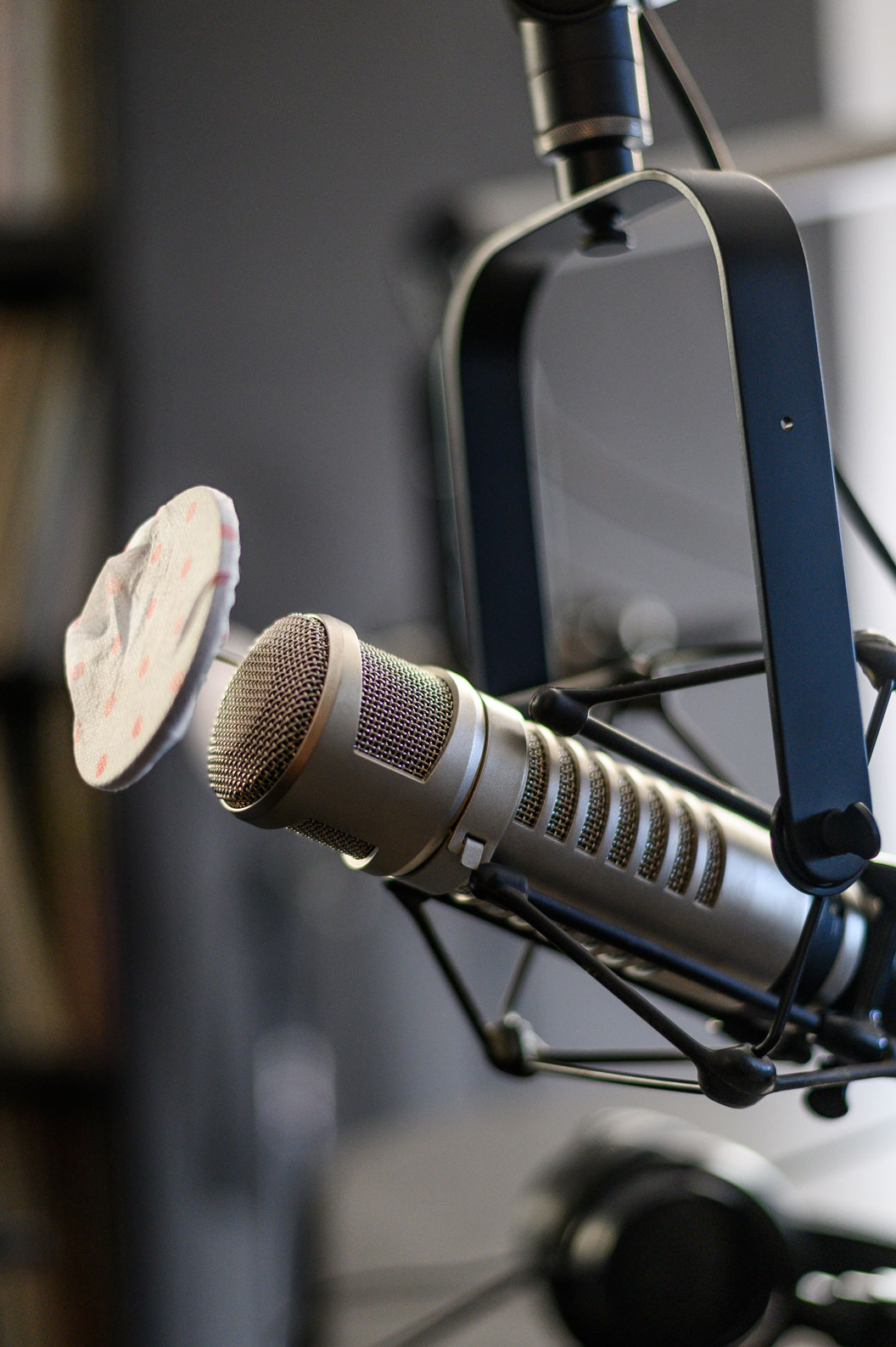
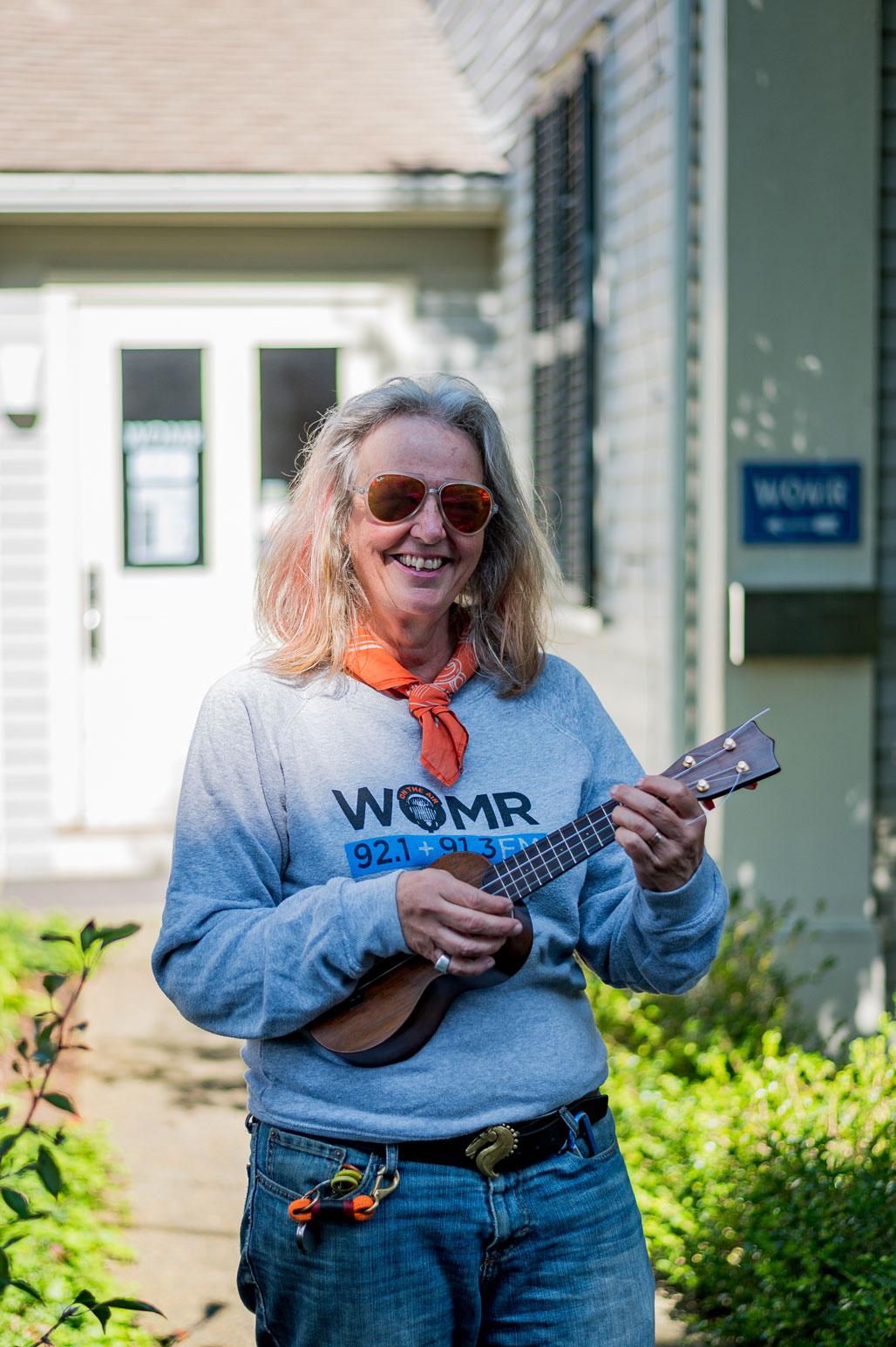
DJ Ukulele Diva
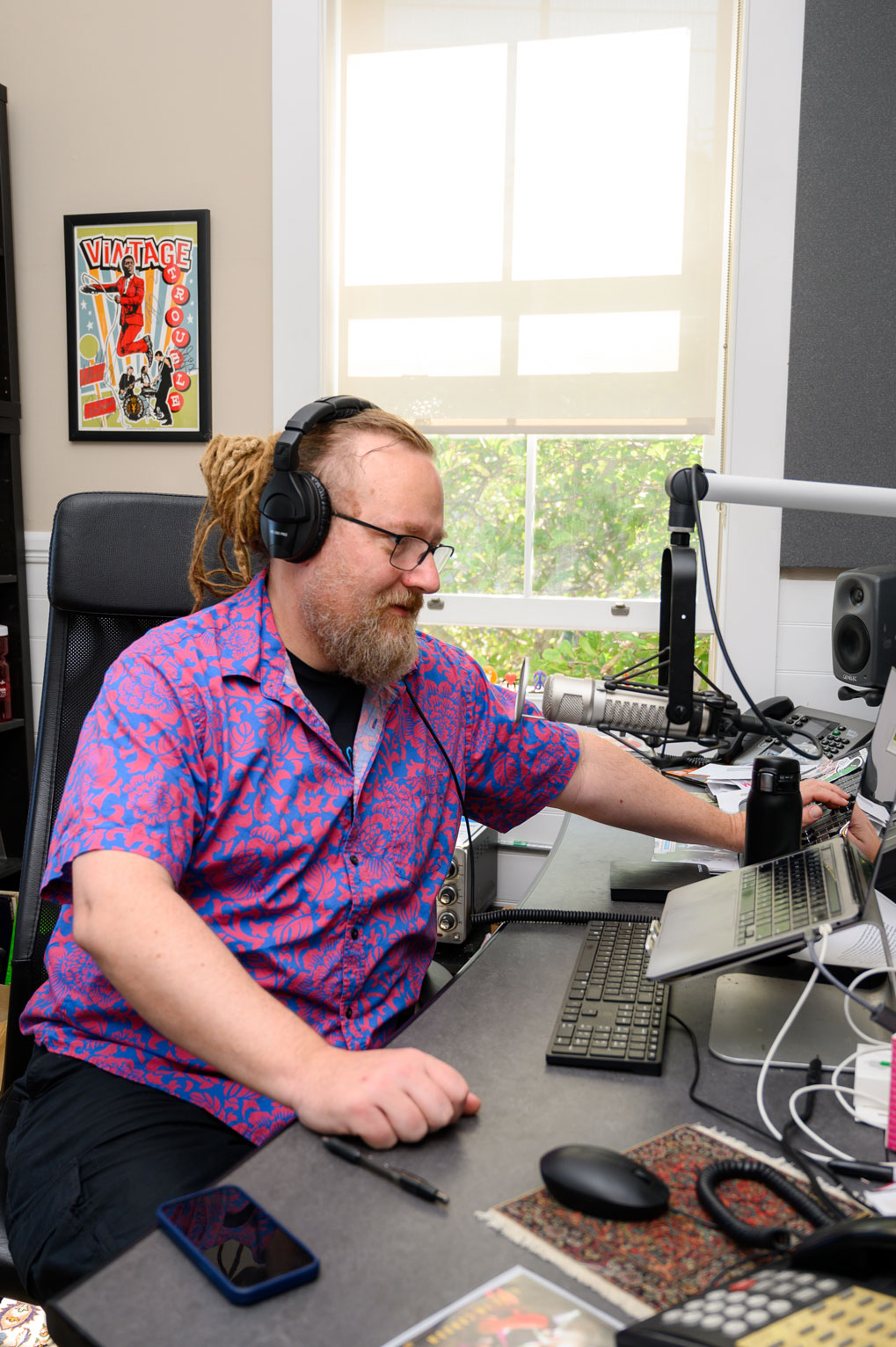
DJ Matty Dread

DJ The Night Ranger
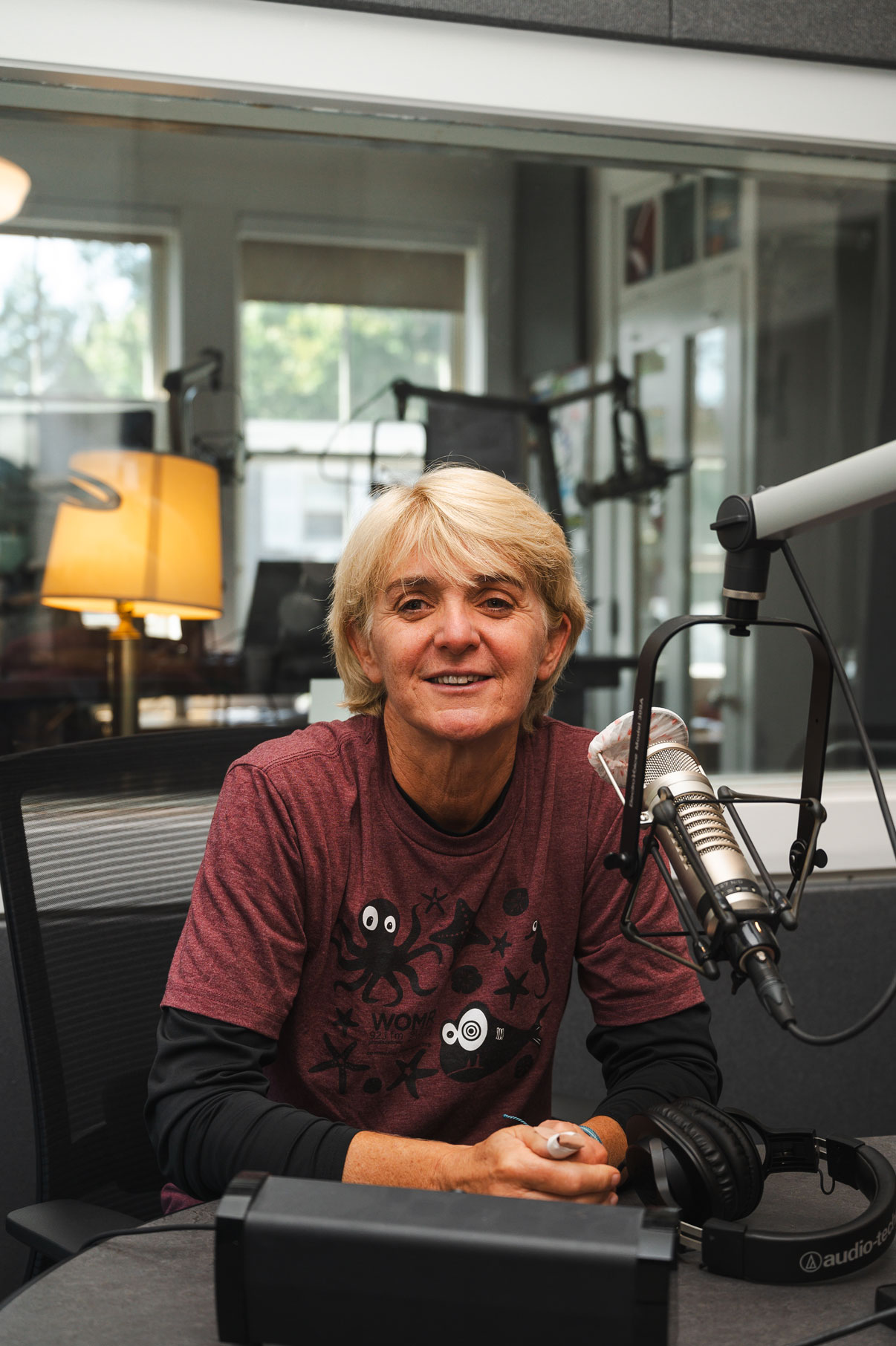
DJ Fran
A smattering of syndicated shows aside, WOMR’s 24/7 programming is produced locally and now heard globally via a web stream and a new app (buttressing two terrestrial signals). As a business entity, the nonprofit mirrors a public radio model where more than 50 percent of its funding is derived from listeners.
But as a media platform, WOMR largely defies radio customs.
Eccentric by choice, the station resembles a kind of audio amoeba with no real grounding, no center of gravity, no forced playlists, no stifling formats—it evolves constantly. It functions by self-renewal, an organic fusion of amateur virtuosos and community-minded civics.
Diversity of programming is one of WOMR’s enduring hallmarks. There is something for everyone: folk, blues, classical, Americana, country, oldies, punk, funk, rock, jazz, indie, pop, soul, Celtic, bluegrass, Dixieland, reggae. Spoken-word programs feature local-interest interviews and information about the arts, politics, food, the environment, wellness, and news. Saturdays offer student-based shows in the morning and operas in the afternoon. Weird is welcome.
Radio has a rich history on the Outer Cape. In 1903, Guglielmo Marconi conducted the first successful transatlantic wireless communication between Europe and America. His nascent station served, in effect, as the first “voice of America.”
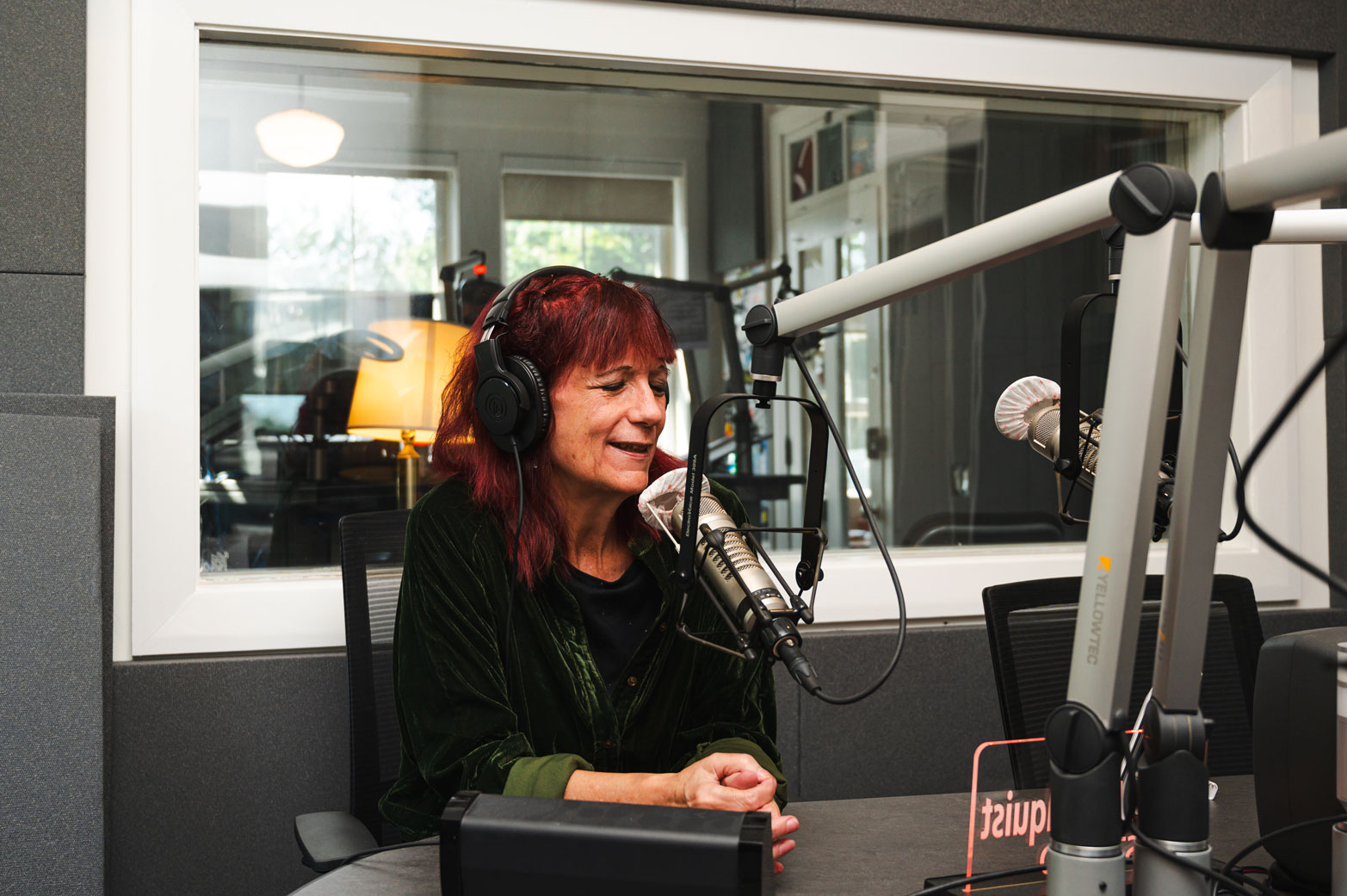
Spoken-Word Host Jeannette de Beauvoir
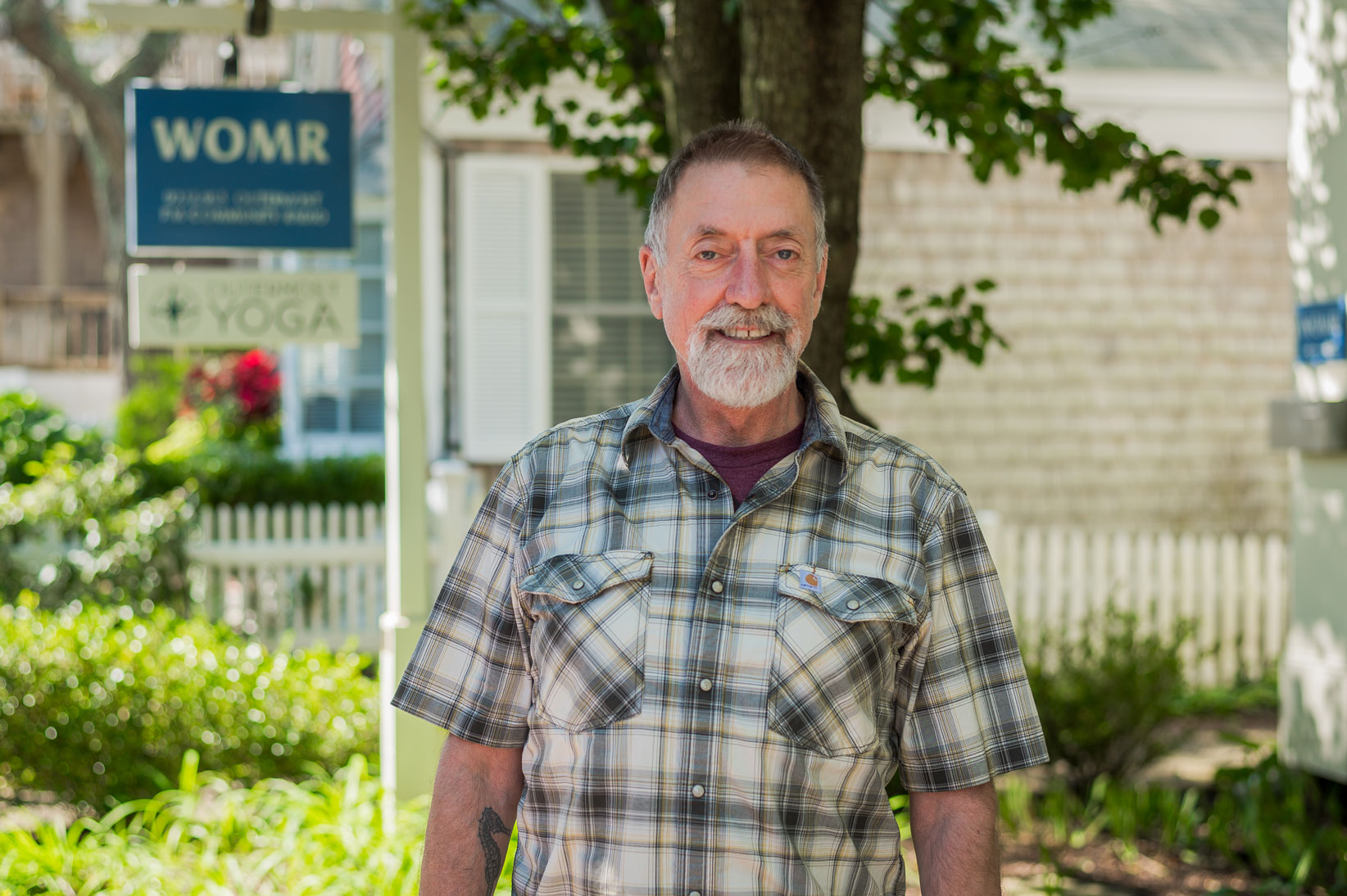
Executive Director John Braden
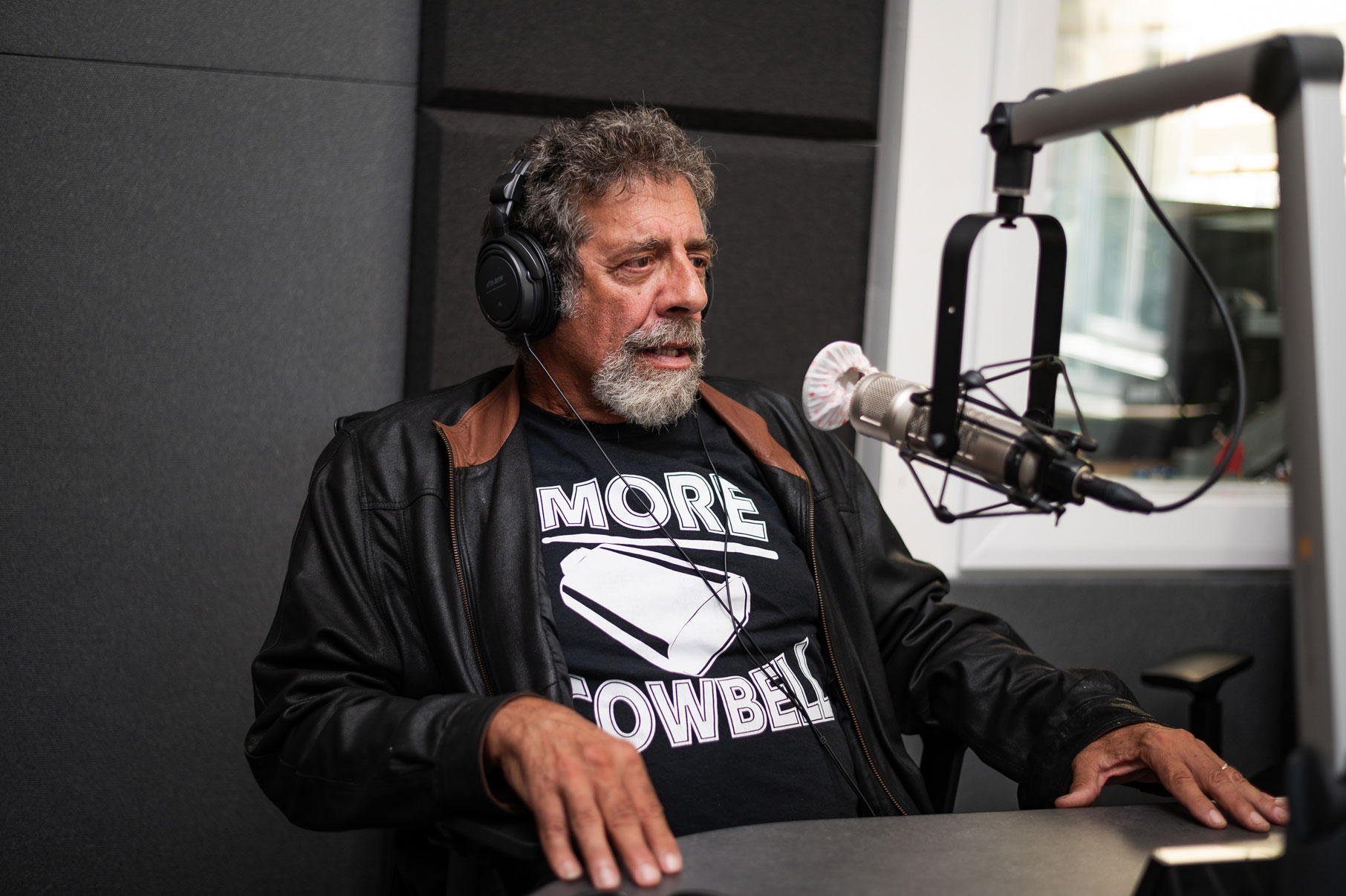
DJ Ira Levinduschki
After WWII, activists on the West Coast seeking to liberate the airwaves from commercial dominance pioneered community radio. Seattle’s genesis rock of community radio, KRAB, was founded in 1963 and subsequently inspired an explosion of stations in the late ’60s and early ’70s.
Today, in the U.S., there are nearly 15,500 commercial radio stations and approximately 2,500 non-commercial stations (including community ones). The number of stations has doubled since 1970. And despite some expected turbulence, the demise of radio has yet to materialize.
John Braden first volunteered at WOMR in 1991 and has been the station’s executive director for more than a decade. He marvels at the “outstanding number of people” (likely in the thousands) who have helped advance its programming and fundraising. Braden, along with Operations Manager and DJ Matty Dread and Office Manager Chris Boles, have been working together since 2010. Their now stable collaboration–preceded by a period of internecine political and financial strife–continues to foster growth and prosperity.
This steadiness proved critical during COVID-19, when many commercial radio stations curtailed programming and benched on-air personalities. But the WOMR collective knew that the station’s core strength is its human connection with loyal listeners and community members.
During the pandemic, it adapted and kept programming basically intact, with presenters recording shows remotely. Not ideal, certainly, but it was a powerful reminder of the need for human currency, primacy, and immediacy in radio. It also reinforced the notion that good radio is about song collection and soul connection.
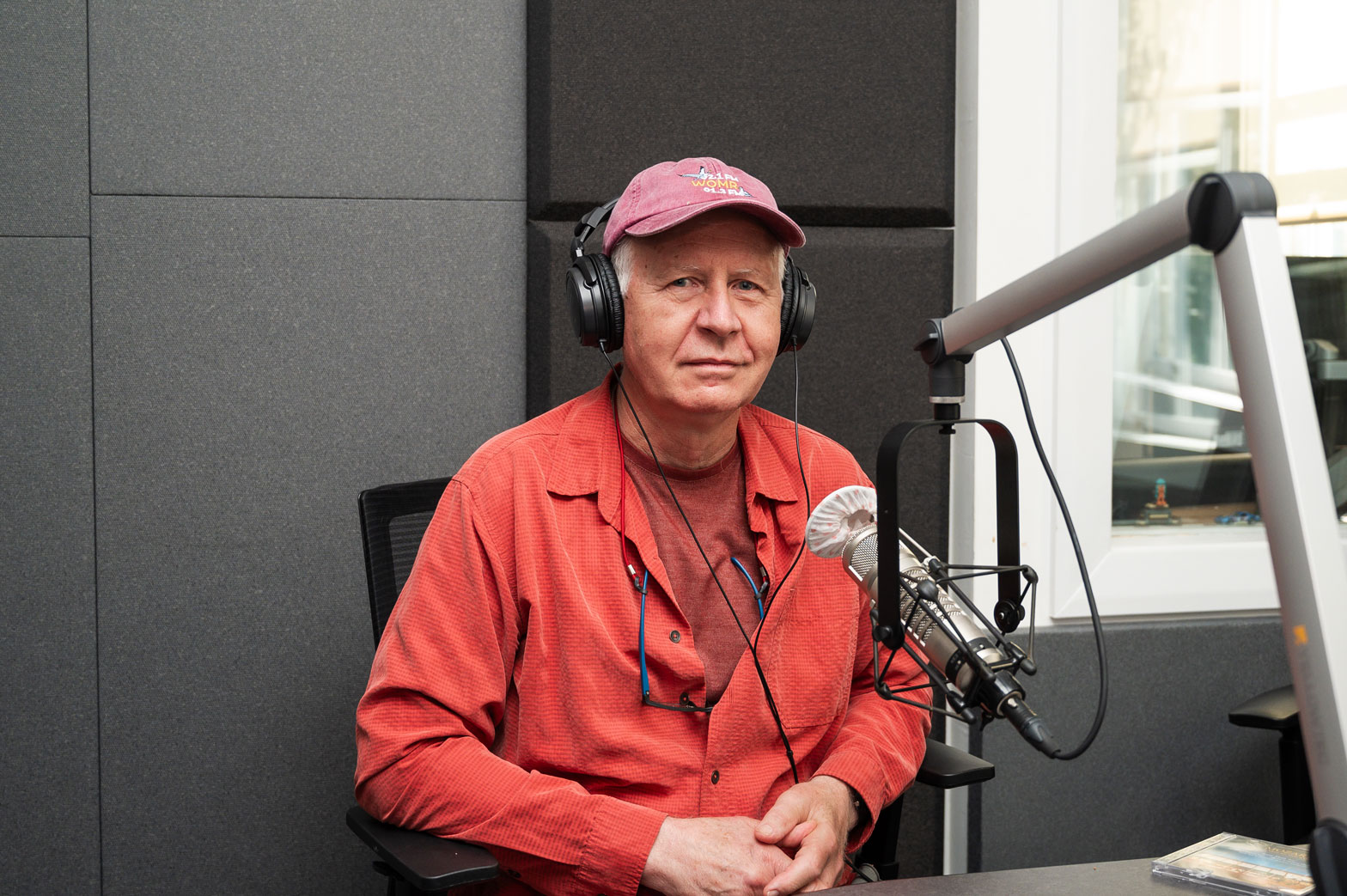
Spoken-Word Host Harry Cason

DJ Mike Fee
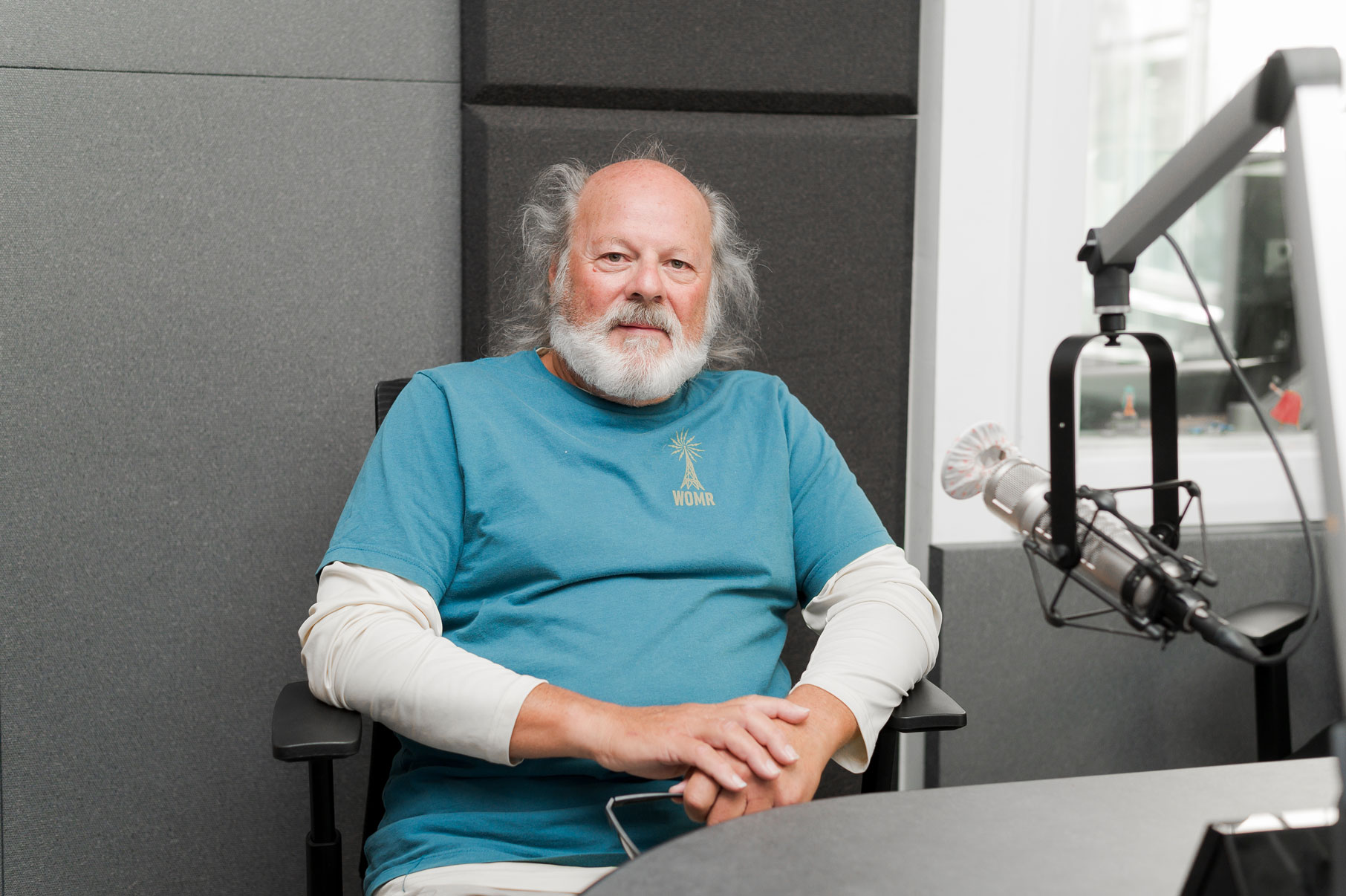
DJ Joel Shaw
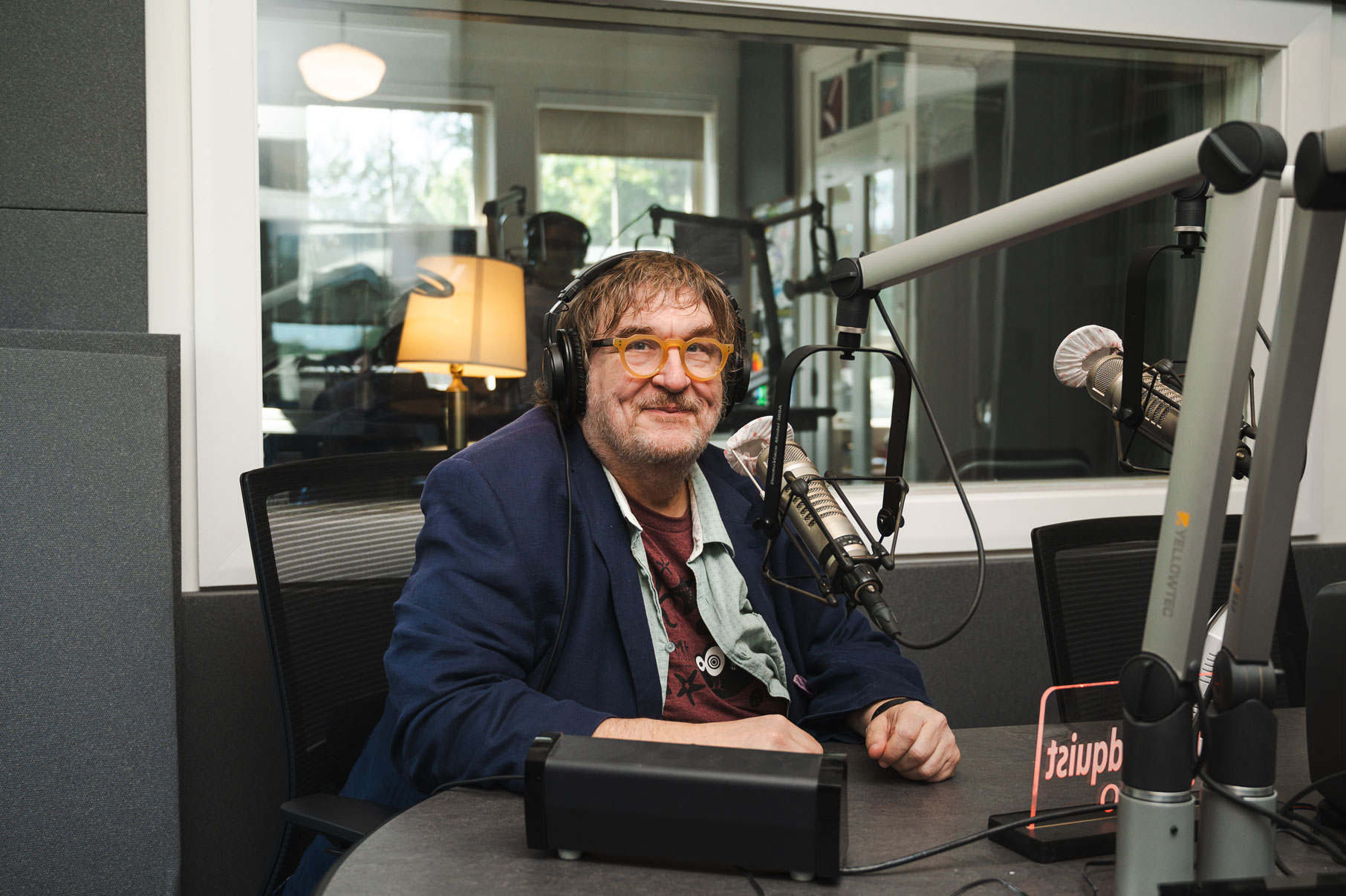
DJ Fred Boak
As Matty Dread says, “I’m proud of what we were able to do. I think we came to understand the importance of what we were doing.”
Still, in a post-pandemic world, WOMR’s challenges remain a daunting crucible. How does a local station with a global reach define “community”? How will demographic, cultural, and technological changes affect its future? No matter the shifting hazards, there is an underlying sense of optimism. The station has faced existential, not to mention meteorological, gales in the past and has overcome them all.
Around midnight, G. Orca Limbo Jones sets the overnight programming. After 17 years on air, he’s still having fun, and his ambitions are no less bold than the station’s larger aims of serving an increasingly diverse and complex community: “I’m looking to preserve the sanctity of broadcast radio,” he summarizes.
WOMR remains a grand experiment of individual and communal creativity that results in daily radio of the people, by the people, and for the people. womr.org
